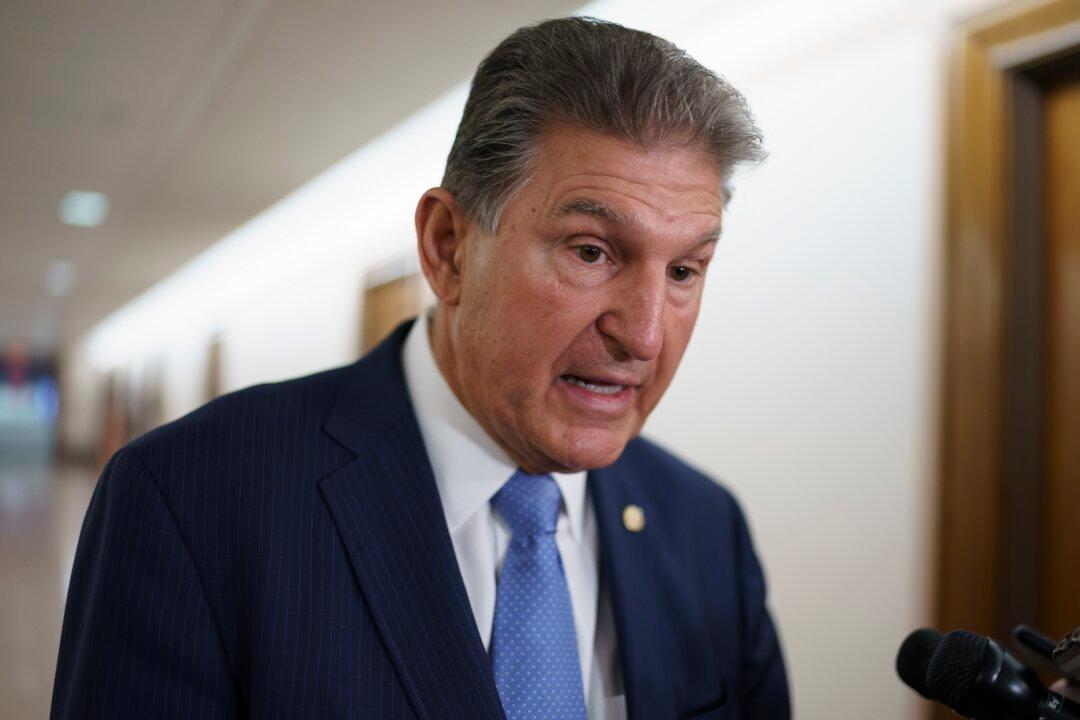Sen. Joe Manchin (D-W.Va.), on the eve of a voting deadline for the Democratic leadership’s $3.5 trillion spending bill, decried the measure as “fiscal insanity,” warning that it would not get his vote without further adjustments.
“I cannot—and will not—support trillions in spending or an all-or-nothing approach that ignores the brutal fiscal reality our nation faces,” Manchin said in a statement late on Wednesday.





